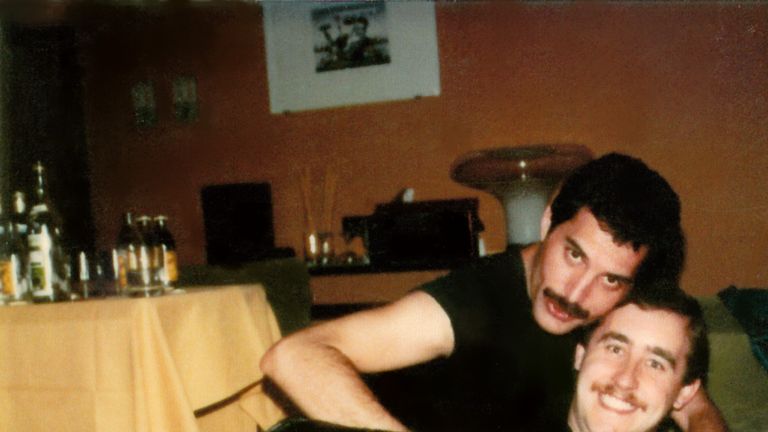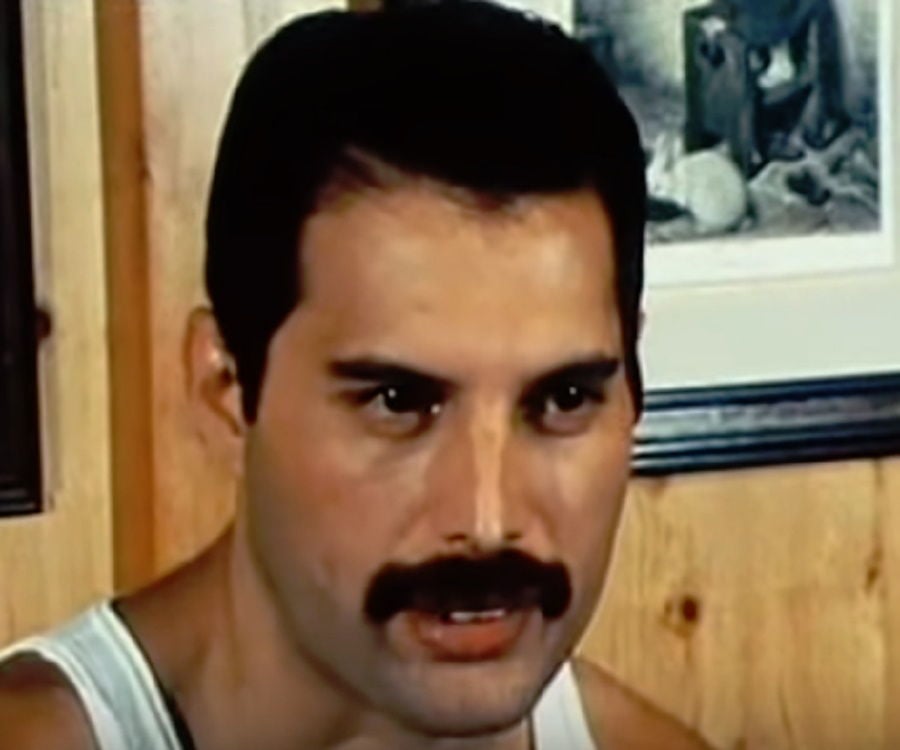
Queen begins and ends with Freddie Mercury. You’re adored – surrounded by people who love you, yet utterly lonely. . . . The excess leaked from the music into life.” Queen were the biggest thing in the world. . . . “But even we didn’t know a lot of things about Freddie.” Years later, May said, “It fucked us up in the way only an out-of-world experience can do. “We were very close as a group,” Taylor said days after Mercury’s death.

When Taylor and May have talked about the Mercury years (Deacon refuses to talk about the experience at all), it’s sometimes as if they’re still mystified by how wonderful and horrible it all was. Today, nearly 23 years after Freddie Mercury died of bronchopneumonia related to AIDS, Queen’s legacy – as one of rock’s biggest and most controversial bands – is still inseparable from him, whatever the success May and Taylor might achieve in the next few months on tour with Adam Lambert. The rest of us played OK, but Freddie was out there and took it to another level.” Years later, May would say, “That was entirely down to Freddie. But then, after the Live Aid performance – which exemplified everything extraordinary about Queen, their scope, their virtuosity, their command of a stage – all anybody wanted was more.
#FREDDIE MERCURY WHAT MORE DO YOU NEED TO KNOW PRESS SERIES#
After a mind-stopping error of judgment in 1984, when Queen elected to play a series of shows in apartheid South Africa, the band appeared to be pariahs even in its native England. Then, by the mid-1980s, their fates had shifted – in part because many fans had trouble accepting Mercury’s perceived homosexuality. After their epic 1975 album A Night at the Opera, they had piled up hit after hit in a stylistically diverse range: from baroque pop to hard rock, disco, rockabilly and funk.


That it was Queen accomplishing this came as a wonder to nearly everybody. Some people found the sight of that multitude acting in spontaneous accord, like a human tide, scary: that much power, all at the beckon of one band and one voice. Mercury grabbed his sawed-off microphone stand as the band swayed into the rapturous “Radio Ga Ga,” and the crowd responded with a collective gesture, slapping hands overhead and pumping fists as the singer pushed them on with his sonorous roar. Mercury began by sitting at the piano, playing Queen’s most famous song, the strange and gorgeous “Bohemian Rhapsody,” with the band storming in behind him in majestic stride, and an audience of 72,000 singing the lyrics from a seemingly deep-rooted memory, as if this was what they had waited for all day. from the moment Freddie Mercury and the other members of Queen – guitarist Brian May, drummer Roger Taylor and bassist John Deacon – took the stage at London’s Wembley Stadium, on July 13th, 1985, at the historic Live Aid concert, the group captured the day.


 0 kommentar(er)
0 kommentar(er)
